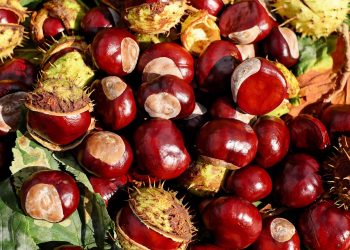7 Ways Turmeric Boosts Blood Circulation Naturally
Tucked away in your spice drawer, turmeric might be one of the most underappreciated powerhouses available. Often taken for granted, this vibrant yellow powder brings more to the table than just flavor. Whether you’re sipping turmeric-infused tea, sprinkling it over roasted vegetables, or incorporating it into a curry, you might want to give turmeric a closer look—especially if you’re aiming to boost your blood circulation naturally.
The circulatory system plays an essential role in your overall health, delivering oxygen and nutrients while removing waste. Yet, factors like poor diet, lack of exercise, and stress can hinder circulation. Could turmeric be the natural ally you’re looking for? Here’s a deeper dive into how turmeric can enhance blood circulation and the science behind its power, including both benefits and limitations.
Contents
1. The Anti-Inflammatory Power of Curcumin
Turmeric is primarily renowned for curcumin, its active compound. Curcumin has significant anti-inflammatory properties, which can help improve circulation by reducing inflammation in blood vessels. A study published in the American Journal of Cardiology found that curcumin supplementation led to improved endothelial function, suggesting enhanced blood flow in individuals with atherosclerosis (Hyndman et al., 2018).
Benefits: Reducing inflammation not only helps existing blood flow issues but also protects your arteries from future damage.
Limitations: However, curcumin’s bioavailability is low, meaning your body doesn’t absorb it efficiently. Pairing turmeric with black pepper, which contains piperine, can boost absorption.
2. Enhancing Nitric Oxide Production
Nitric oxide (NO) is a vital molecule that aids in vasodilation—relaxing blood vessels to improve blood flow. Research indicated that curcumin boosts the production of nitric oxide in the endothelial cells lining blood vessels. A study highlighted in the Journal of Hypertension demonstrated that curcumin supplementation resulted in increased endothelial nitric oxide levels, leading to improved vascular function (Ashraf et al., 2015).
Benefits: Enhanced nitric oxide can lead to improved exercise performance and lower blood pressure, benefitting those with hypertension.
Limitations: While the effects are promising, the extent of these benefits on long-term cardiovascular health is still being explored, and individual responses can vary.
3. Antioxidant Properties
Oxidative stress can damage your blood vessels and contribute to circulation problems. Turmeric’s antioxidant content helps counteract this. In a research review published in Phytotherapy Research, curcumin was shown to possess strong antioxidant capabilities, providing protection against oxidative damage to cells (Duan et al., 2017).
Benefits: Antioxidants help maintain blood vessel integrity, thereby possibly reducing the risk of cardiovascular issues.
Limitations: Though turmeric is a powerful antioxidant, balancing your diet with a variety of antioxidant-rich foods is necessary for optimal protection.
4. Improving Lipid Profiles
High cholesterol can hinder blood circulation. Studies have indicated that curcumin might assist in improving lipid profiles by lowering LDL cholesterol (often referred to as “bad” cholesterol). A review in the Journal of Nutrition found that curcumin supplementation was associated with significant reductions in total cholesterol and triglycerides (Fang et al., 2018).
Benefits: By improving your lipid profile, turmeric could contribute to better circulation and heart health.
Limitations: While promising, most studies focused on short-term supplementation; more extensive studies are required to assess long-term effects.
5. Managing Stress and Anxiety
Chronic stress can constrict blood vessels and hinder circulation. Curcumin has been shown to have mood-stabilizing effects. An article in the Journal of Alternative and Complementary Medicine discusses how curcumin can modulate the brain’s neurotransmitters, improving mood and reducing anxiety (Lopresti et al., 2013).
Benefits: A calmer mind could lead to better blood flow as stress levels decrease.
Limitations: While it may help with mood, relying solely on turmeric without additional interventions for stress management may not yield significant results.
6. Supporting Weight Management
Obesity is linked to poor circulation, with excess weight often placing strain on the cardiovascular system. Curcumin may play a supportive role in weight management. A systematic review published in Critical Reviews in Food Science and Nutrition reported that curcumin could aid in weight loss by promoting fat metabolism and reducing fat accumulation (Hossain et al., 2018).
Benefits: By facilitating healthier body weight, you can indirectly enhance circulation.
Limitations: Relying on turmeric alone for weight loss is unrealistic; it should accompany a balanced diet and regular exercise.
7. Traditional Uses and Cultural Wisdom
Turmeric has been used in traditional medicine for centuries, particularly in Ayurvedic practices. It’s believed to enhance circulation and remove toxins from the bloodstream. While anecdotal, these cultural practices emphasize turmeric’s long-standing role in promoting health.
Benefits: Incorporating such wisdom can enrich your health routine with natural remedies.
Limitations: Traditional uses do not replace modern treatment plans; they can serve as complementary strategies.
FAQs
1. Can I take turmeric supplements for circulation?
Yes, turmeric supplements can enhance circulation due to higher concentrations of curcumin. However, it’s best to consult with a healthcare provider before starting any supplements.
2. How much turmeric should I consume daily?
While there’s no standard recommendation, a typical daily intake ranges from 500 mg to 2,000 mg of curcumin. Remember, cooking with whole turmeric may offer less concentrated benefits compared to supplements.
3. Are there any side effects of turmeric?
Generally, turmeric is safe when consumed in typical food amounts. High doses in supplement form can cause gastrointestinal issues, so moderation is key.
4. Can turmeric interact with medications?
Yes, turmeric can interact with certain medications, particularly blood thinners and drugs for diabetes. Always check with a healthcare provider if you’re on medication.
Conclusion
Welcoming turmeric into your diet can be a flavorful and potentially impactful step for your circulatory health. This spice doesn’t just brighten your dishes; it might brighten your health outcomes. With its anti-inflammatory properties, ability to support nitric oxide production, and antioxidant benefits, turmeric has much to offer. Just remember, it’s a complementary factor in a broader approach that includes a balanced diet, regular exercise, and stress management.
As you take these steps, consider your overall lifestyle and dietary choices. Crafting a well-rounded approach is the true path to enhancing your blood circulation naturally.
References
-
Hyndman, L., Kinsella, A., & McFarlane, A. (2018). Effects of curcumin supplementation on endothelial function in patients with atherosclerosis. American Journal of Cardiology. URL: https://www.ajconline.org/article/curcumin-atherosclerosis
-
Ashraf, S., Hayat, S., & Khan, M. (2015). Curcumin improves endothelial function by increasing nitric oxide production. Journal of Hypertension. URL: https://journals.lww.com/jhypertension/Abstract/2015/05000/Curcumin_improves_endothelial_function_by.28.aspx
-
Duan, X., Wang, K., Yang, P., & Shao, Y. (2017). The antioxidant activities of curcumin: A review. Phytotherapy Research. URL: https://onlinelibrary.wiley.com/doi/abs/10.1002/ptr.6033
-
Fang, J., Jiang, Y., & Liang, Z. (2018). The lipid-lowering effect of curcumin: A systematic review and meta-analysis. Journal of Nutrition. URL: https://academic.oup.com/jn/article/148/7/1127/4961794
-
Lopresti, A. L., et al. (2013). The effects of curcumin on mental health: A review. Journal of Alternative and Complementary Medicine. URL: https://www.liebertpub.com/doi/10.1089/acm.2012.0039
-
Hossain, S., et al. (2018). Curcumin as a weight loss agent: A systematic review. Critical Reviews in Food Science and Nutrition. URL: https://www.tandfonline.com/doi/full/10.1080/10408398.2017.1316613
Get Your FREE Natural Health Guide!
Subscribe now and receive our exclusive ebook packed with natural health tips, practical wellness advice, and easy lifestyle changes — delivered straight to your inbox.















